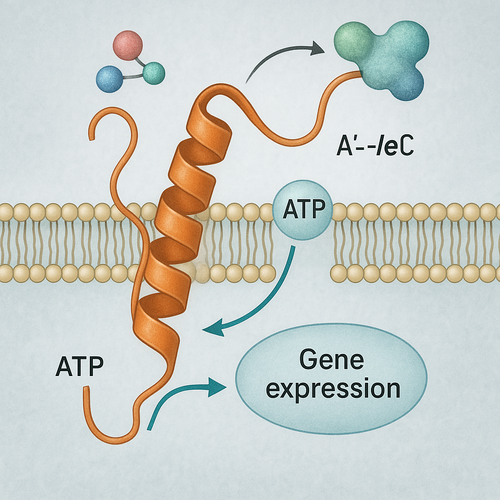Micellar composition from an amphiphilic copolymer for tumor therapy
A novel amphiphilic copolymer forms micelles with a hydrophilic dendritic polyglycerol sulfate shell and hydrophobic polymer core, linked by a non-triazole hydrocarbon spacer. These micelles stably encapsulate hydrophobic anti-tumor drugs, show negligible leaching over 24 h, and release payloads in reductive or acidic tumor environments.
Innovation Explanation
This invention describes a block copolymer comprising a dendritic polyglycerol sulfate first block and a second hydrophobic block (PCL, PLA, or PLGA) linked via a C6–C20 alkyl spacer without a triazole ring. Upon dilution in water, the amphiphiles self-assemble into 30–100 nm micelles. The absence of click-chemistry triazole enhances linker stability, yielding a tenfold lower critical micelle concentration (CMC) and <1 % drug leaching in buffer over 24 h. Redox-sensitive disulfide or pH-cleavable imine/acetal units enable triggered drug release in tumor microenvironments. Scalable syntheses avoid hazardous byproducts and allow solid-state storage with facile resuspension. In vitro sunitinib-loaded micelles exhibit high loading efficiency (65–71 %), low cytotoxicity of empty carriers up to 1.25 mg/mL, and therapeutic efficacy comparable to or better than free drug.
Key Innovation Features and Advantages
- Feature one: Redox- or pH-cleavable hydrocarbon linker devoid of triazole for enhanced stability and negligible premature release.
- Dendritic polyglycerol sulfate shell imparts intrinsic tumor targeting and biocompatibility.
- A tenfold reduction in CMC versus prior art ensures high circulatory stability.
- Scalable, cost-effective synthesis free of hazardous byproducts.
- Dry, lyophilizable formulations that resuspend without cryoprotectants.
4. Use Cases
- Targeted delivery of hydrophobic chemotherapeutics (e.g., sunitinib) to solid tumors.
- Encapsulation of diagnostic or imaging agents for enhanced tumor visualization.
- Parenteral administration in cancers with poor vasculature or metastases.
- Controlled release in reductive (high GSH) or acidic tumor microenvironments.
Commercial Opportunities
- Platform licensing for custom nanocarrier development across oncology pipelines.
- Contract manufacturing of GMP-grade micellar formulations.
- Companion diagnostic services using fluorescently tagged micelles.
- Out-licensing to biopharma for high-value, targeted drug delivery solutions.
Current Status
Application filed under FU201EP 37; copolymers synthesized and physicochemically characterized. In vitro proof-of-concept with sunitinib shows promising stability and efficacy. In vivo studies and formulation optimization are planned.

Keywords
- amphiphilic copolymer, dendritic polyglycerol sulfate, micelle, targeted drug delivery, redox-sensitive linker, pH-cleavable linker, low CMC, tumor therapy, sunitinib, scalable synthesis
